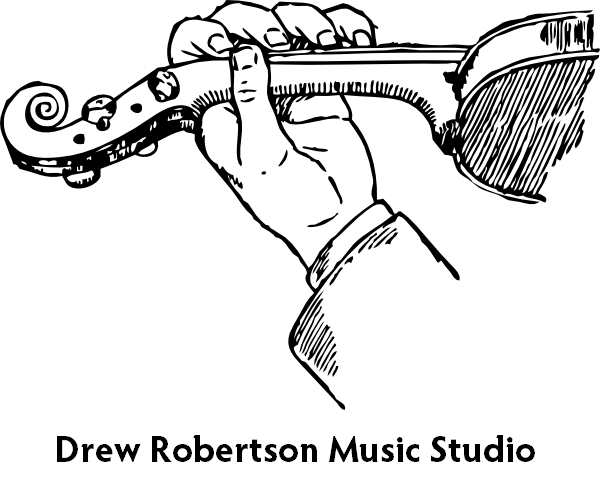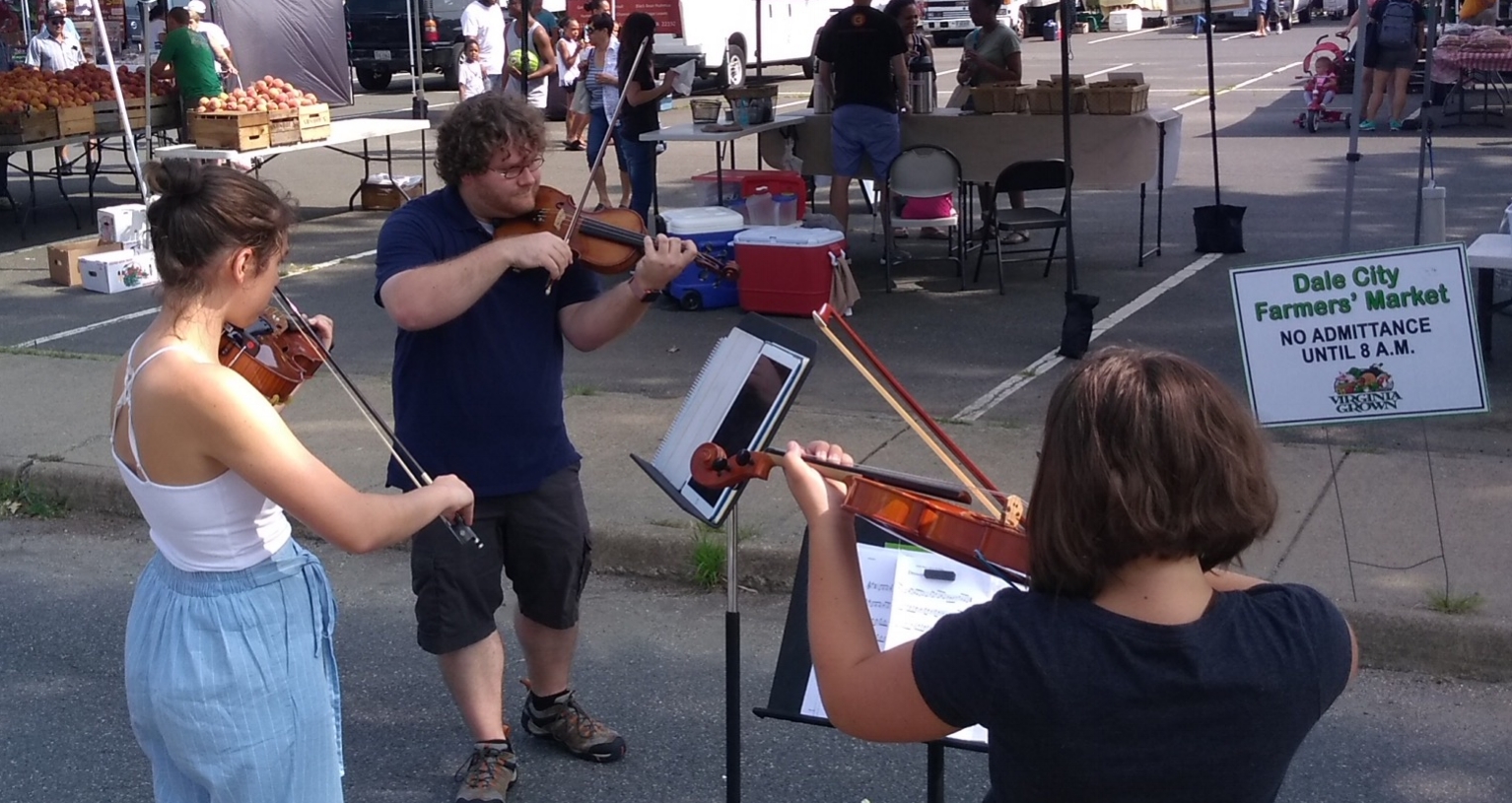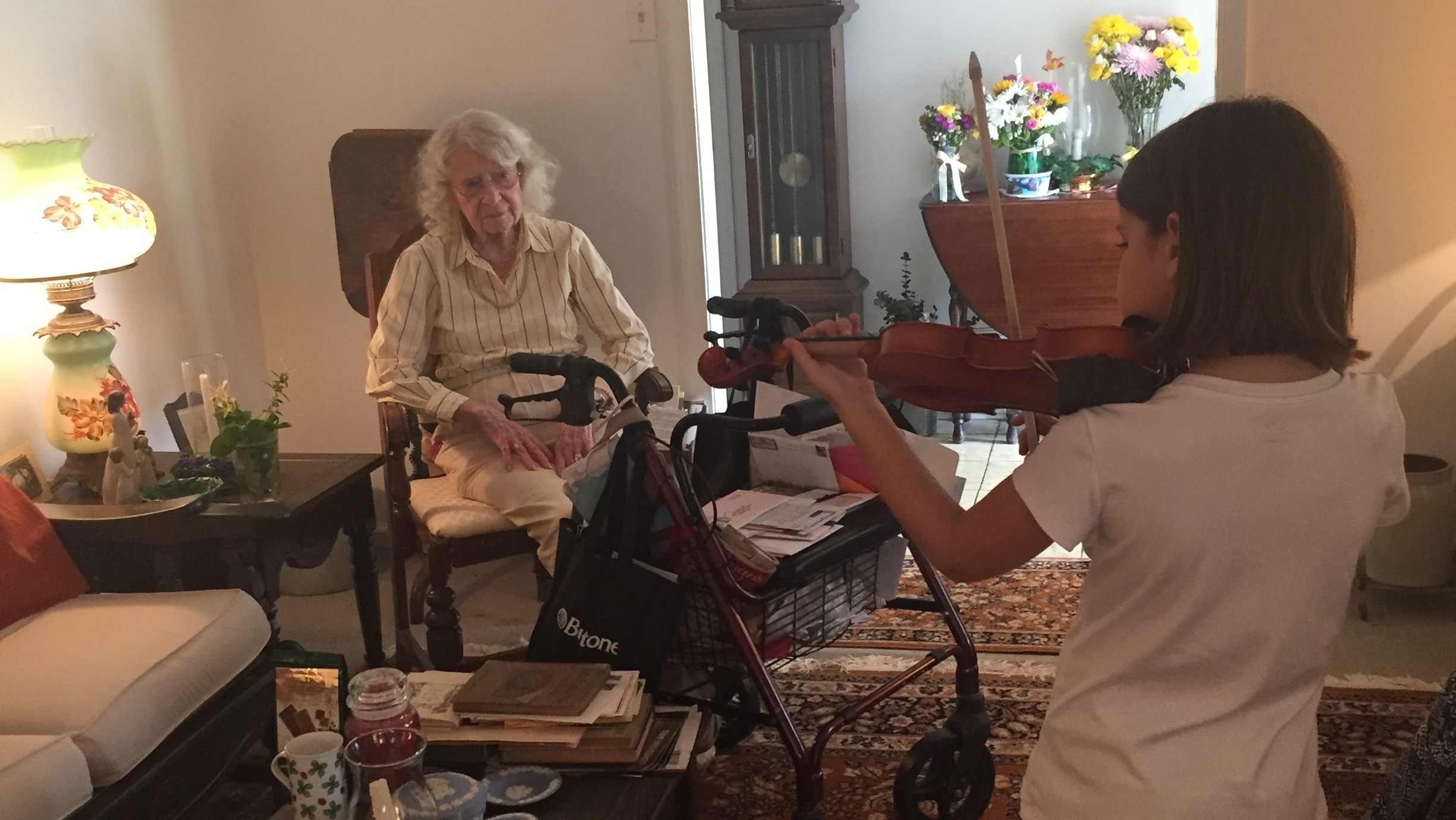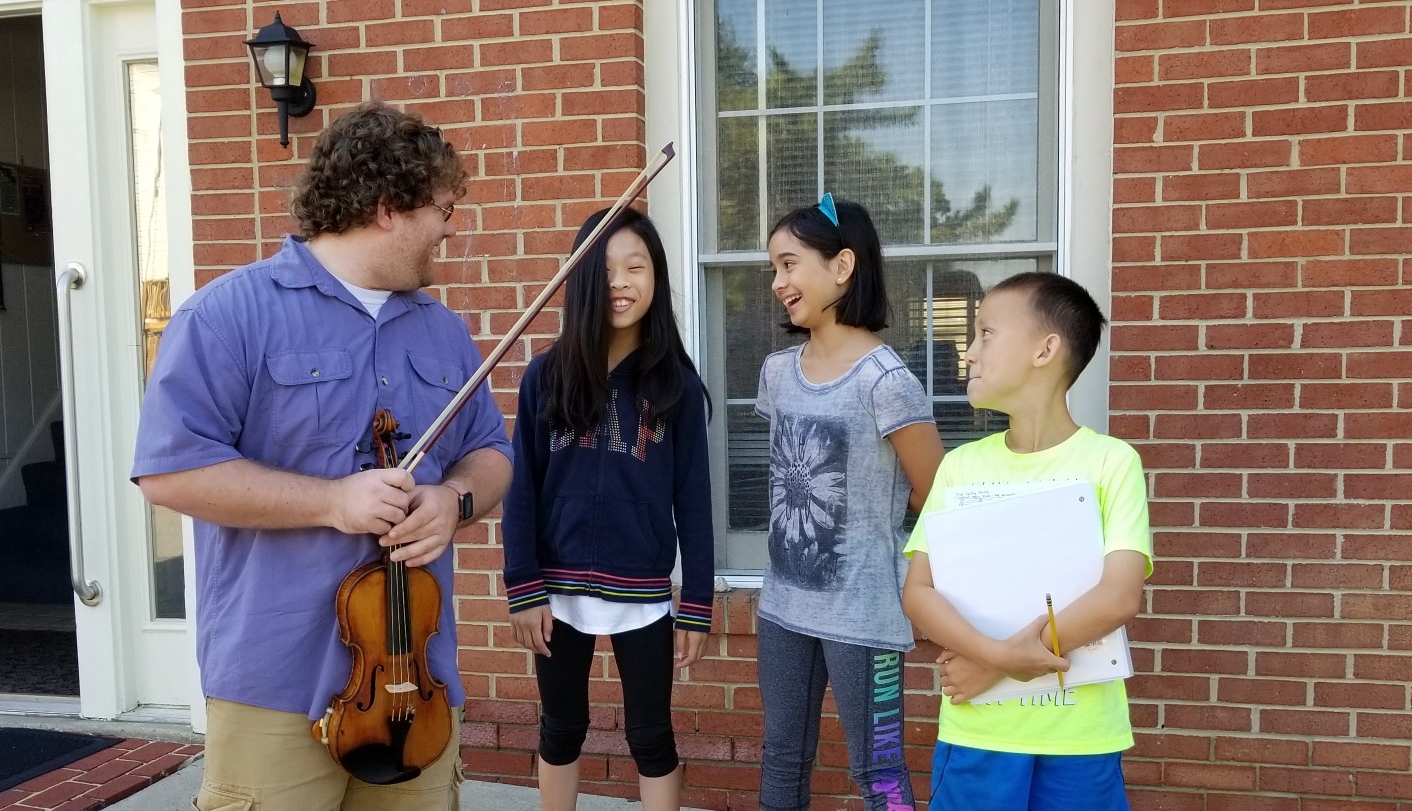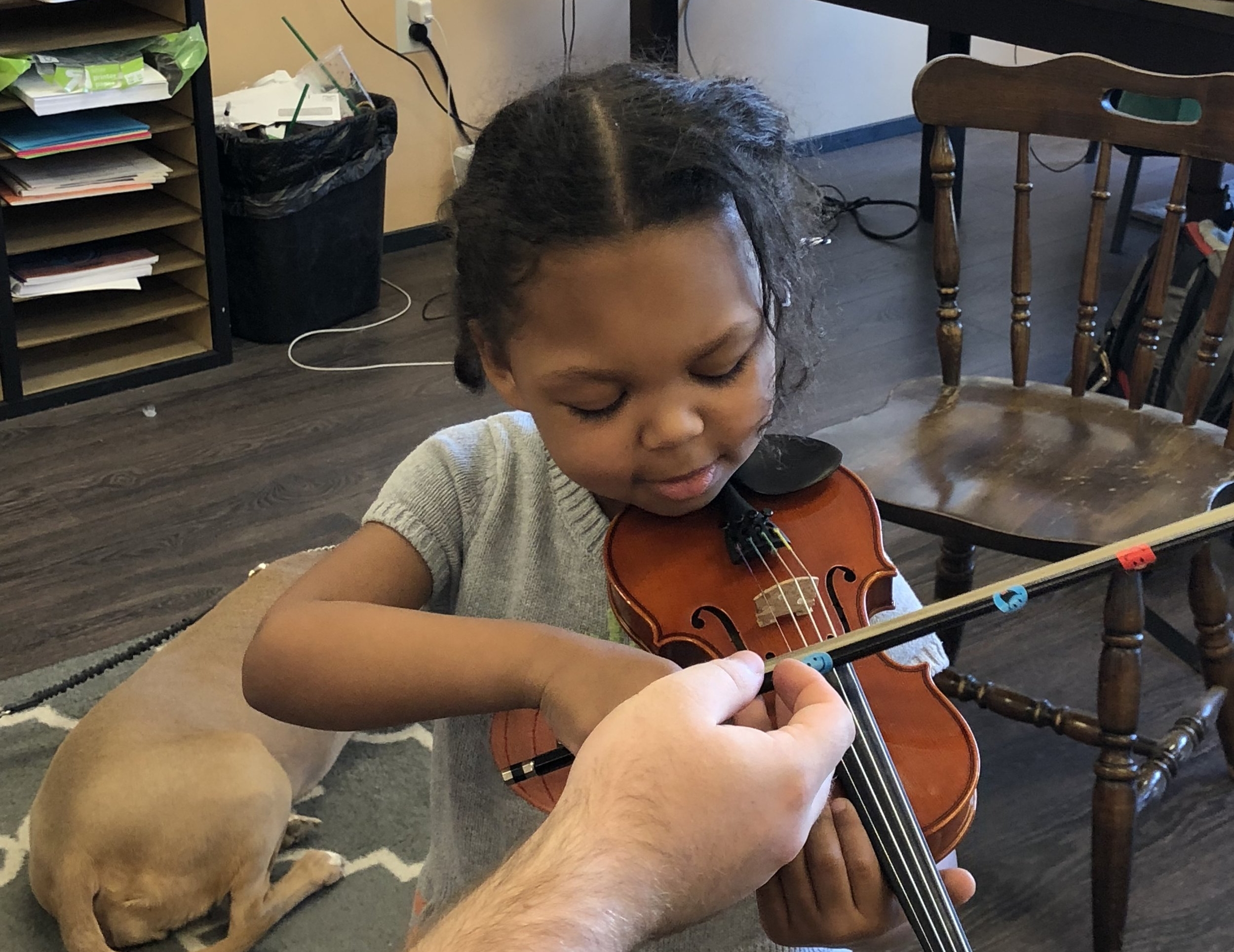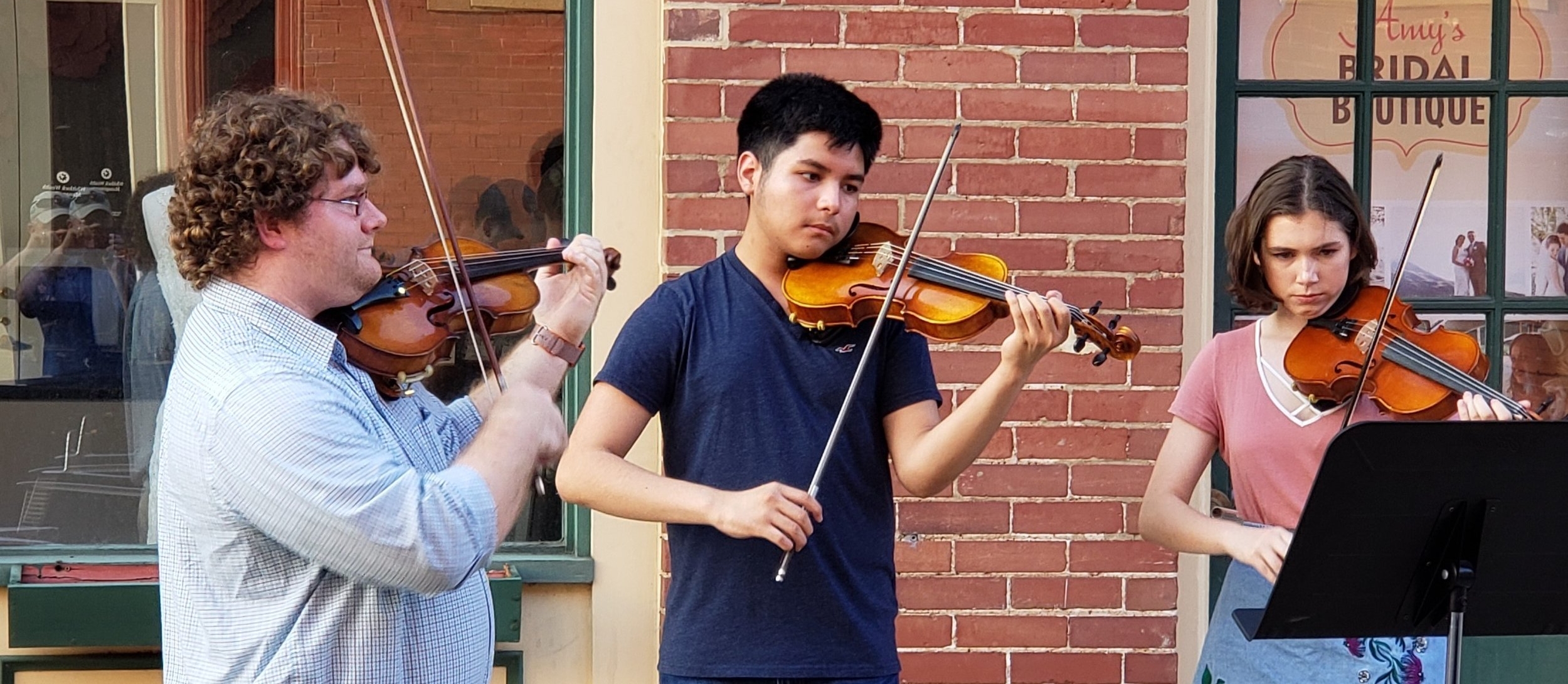Drew Robertson, Violin/Viola
Teaching Philosophy
Teaching music is not about the repertoire.
It is not about building a great bow hold.
It is not about making it through our next performance.
I believe teaching the violin is about empowering students to become independent artists who consistently demonstrate exemplary character and musical excellence.
It is my goal to provide five things for every student:
Technique - From the very beginning of musical study, students should develop performance skills. In their first lesson, I begin to prepare students to play advanced repertoire with precision, ease, and confidence. From the very first “Twinkle” rhythm, my teaching has an emphasis on developing their complete technique, so it can be applied to any piece. In keeping with the Suzuki Method, I believe strongly building a repertory is essential to every performer, and review and polishing are integral, essential steps in the learning process.
Knowledge – In addition to performing at a high level, my students understand why the music should be played a certain way. From my experience playing in everything from Baroque consorts to contemporary and pop ensembles, I provide students with the context and reason why we play a Haydn accent differently than a Bartók one! Beyond performance implications, I believe students should understand the physics, anatomy, history, music theory, mathematics, psychology, and languages linked together through music. As a result, my students become explorers and inquirers- independent thinkers who seek out learning opportunities.
Creativity – Creativity and interpretation are vital to make music come alive. Through my teaching, students learn improvisation and compositional skills, and learn to have musical ‘conversations’ with their peers. For long-term success in music, and in every creative field, it is vital students are empowered to unlock the tools to bring their own musical ideas to live and share them with the world.
Opportunity – The performing arts must be shared to be appreciated. As a teacher, I believe it is essential to provide the greatest possible number of performance opportunities for students. Students in my studio not only perform in recitals, but frequently perform community outreach events for the public.
Character – Character education is the core emphasis of Suzuki education, and it is the true purpose of my teaching. I believe great teaching encourages respect for parents, the teacher, other students, their instrument, and continuing the rich legacy of string playing. Throughout their study, artistry develops, and my students become confident, independent, generous, and supportive young artists. To borrow from Dr. Suzuki, “if a musician wants to be a finer artist, they must first be a finer person.”
The teacher's Role
The natural question arises from these five goals for my students: how do I as a teacher facilitate this? I am continually learning, refining, and improving my playing and teaching to incorporate new ideas. However, I am certain these elements are present in every excellent teacher, and I strive to embody them for every student in every lesson:
Vision - In every lesson, and with every student, I have a vision for what they can accomplish on three levels. The most immediate is within a single lesson, where finding the crucial teaching point is essential for progress. Second, vision in the short-term is vital, as I work to assign realistic practice goals for the week and plan for the next lesson or an upcoming performance. Finally, a long-term vision is essential to develop a student’s musicianship years into the future. This means every lesson has a purpose and every assignment takes us a step closer to genuine artistry. Like a sculptor chipping away at a block of marble, I persistently remove little imperfections or add detail to achieve my vision of student success.
Relationship – Learning can only happen in a safe, trusting, environment. With my youngest “twinkle” students I respect their voices and opinions, physically crouch down to their level, and specifically tailor the imagery of our lesson to match their interests. With older students, I work to empower them as independent artists; providing support and encouragement as they audition for youth orchestras, competitions, and summer festivals. In addition to fostering a strong and supportive relationship with students, I always welcome parents into the lesson space. As practice partners, I believe it is essential for parents to understand, guide, and encourage home practice.
Investment – I believe musicianship is a long-term journey requiring investments of time, money, and care from everyone in the lesson; student, teacher, and parent. I believe it is vital for everyone to have a shared vision of success, and that details such as finances, scheduling, instrument repair, and materials are managed quickly and without incident.
Ethics – I believe teachers should maintain the highest ethical standards. I am clear about expectations for my studio and take great care to treat every student, parent, sibling, and guest with dignity, respect, and without discrimination. I always ask students a direct question if is necessary to use guided touch, and prefer to ask for parents to assist whenever possible. I believe in respecting student privacy if they communicate their insecurities, but also in disclosing concerns to authorities if necessary. I believe that strong ethics not only minimize liability, but also provide the safest, most secure, and most nurturing environment for students.
Health – I believe strongly that the health of the student is of paramount importance. This includes every aspect of health: physical, mental, spiritual, spatial, and emotional. If a student suffers from a complication; from a fractured collarbone to the death of a pet, it will affect their music and ability to learn. I have no hesitation abandoning a lesson plan if a student’s health is compromised. The health and well-being of my students and their families always takes priority.
Mastery – I believe my responsibility as a teacher is to be a master of the material. Not only does this mean I am a capable performer who can demonstrate for students, but I must also be able to provide insight well beyond what is printed on the page. This is only possible through a constant quest to incorporate knowledge from every possible subject into the lesson. To facilitate this, I persistently seek out continuing education opportunities, observe other great teachers, and read as many books, articles, and resources as possible. I practice my own instrument daily and am constantly performing in the community and with students. A great teacher is a lifelong learner.
Experience – Lastly, I believe my methods are reflected in the successes of my students. I believe the truly great teachers have an established, consistent record of student success over time and throughout a student’s course of study. Experienced teachers use proven methods linked to an overarching vision that ensures every student will succeed to the best of their ability.
If you are interested in learning more about Drew Robertson's experience, click here.
If you are interested in joining the studio, click here!
